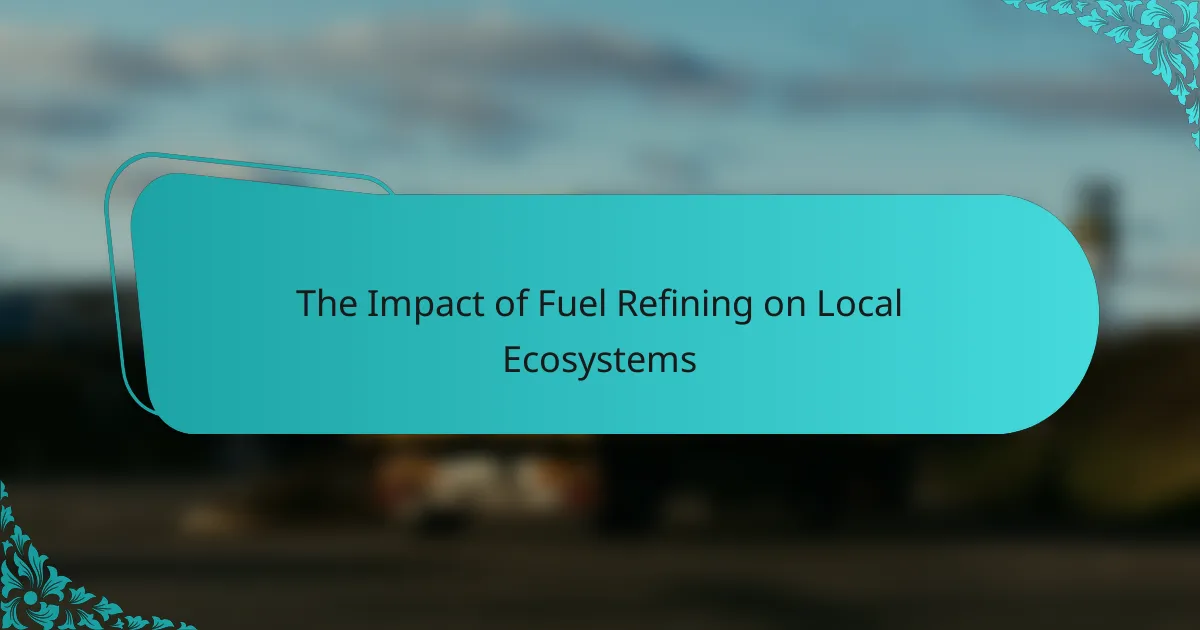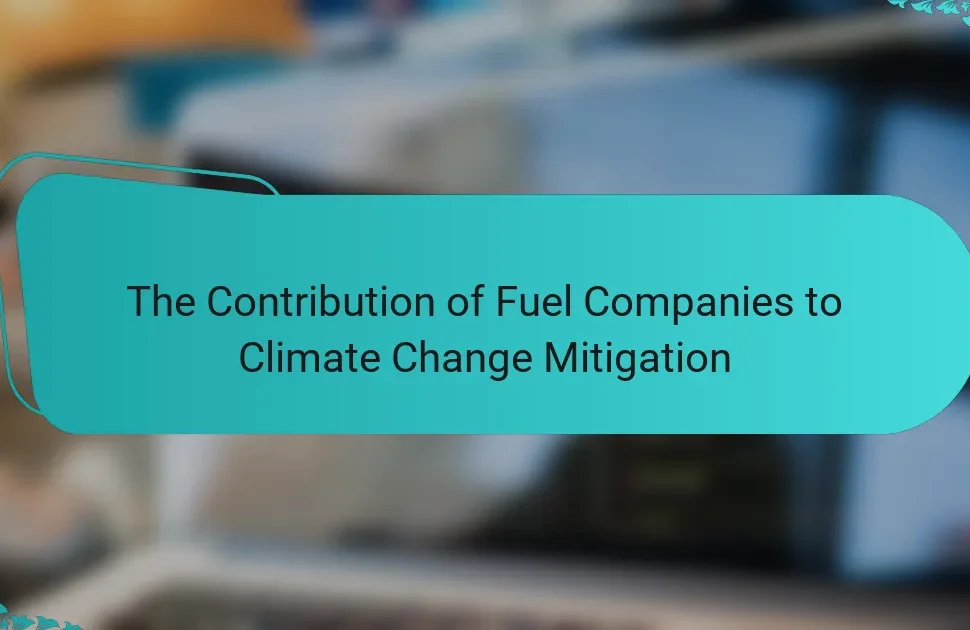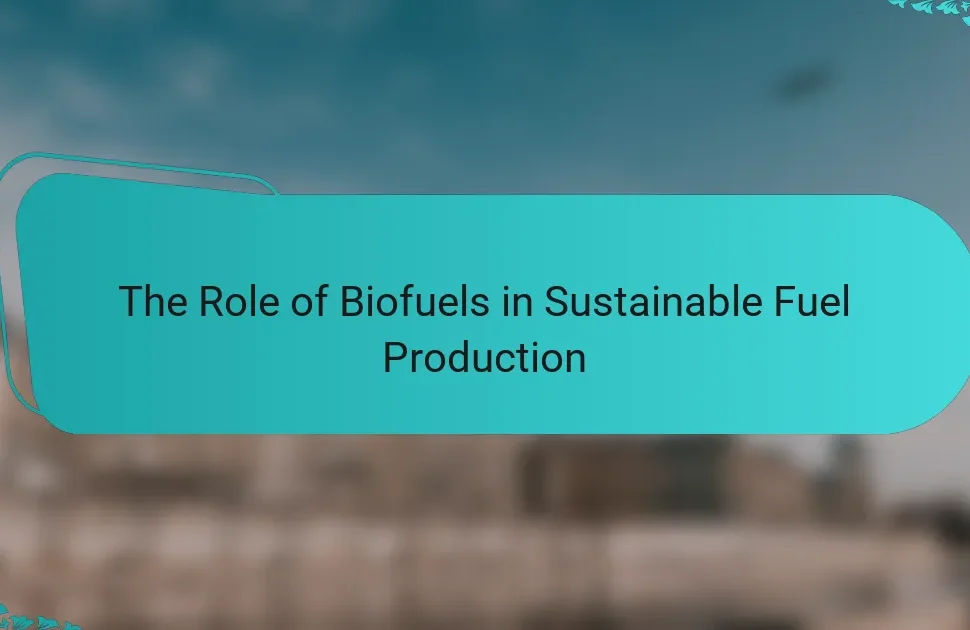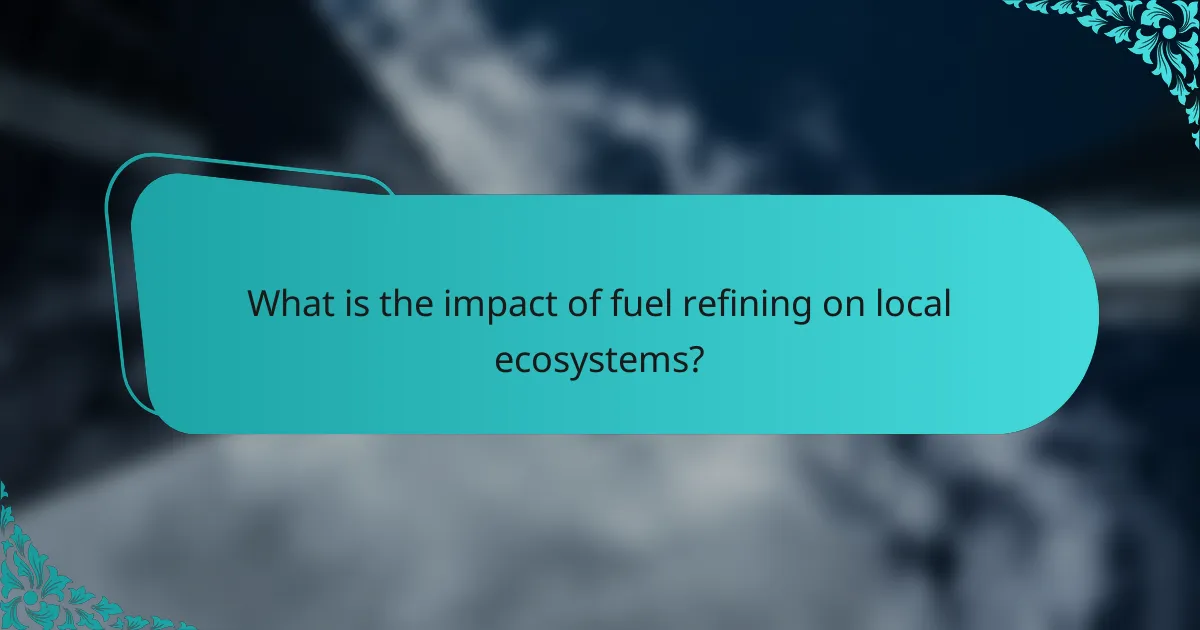
What is the impact of fuel refining on local ecosystems?
Fuel refining negatively impacts local ecosystems. It releases pollutants such as sulfur dioxide, nitrogen oxides, and volatile organic compounds. These substances can lead to air and water quality degradation. Aquatic ecosystems suffer from oil spills and wastewater discharge. Soil contamination occurs due to leaks and spills during refining processes. Wildlife habitats are disrupted by refinery operations and infrastructure. Biodiversity decreases as sensitive species are affected by pollution. Studies show that refining activities correlate with increased respiratory diseases in nearby populations.
How does fuel refining affect air quality in local areas?
Fuel refining negatively impacts air quality in local areas by releasing harmful pollutants. These pollutants include volatile organic compounds (VOCs), nitrogen oxides (NOx), and particulate matter. Emissions from refineries contribute to smog formation and respiratory issues. According to the U.S. Environmental Protection Agency, refineries are significant sources of air pollutants. Studies indicate that communities near refineries experience higher rates of asthma and other health problems. The World Health Organization links air pollution to millions of premature deaths annually. Local air quality monitoring often shows elevated levels of contaminants near refining operations. This evidence underscores the detrimental effects of fuel refining on air quality.
What pollutants are released during the fuel refining process?
The fuel refining process releases several pollutants. Key pollutants include sulfur dioxide (SO2), nitrogen oxides (NOx), and volatile organic compounds (VOCs). Sulfur dioxide contributes to acid rain and respiratory problems. Nitrogen oxides can lead to smog formation and respiratory issues. Volatile organic compounds are precursors to ground-level ozone, which affects air quality. Additionally, particulate matter and heavy metals like lead and mercury may also be emitted. These pollutants can have detrimental effects on local ecosystems and human health.
How do these pollutants impact local flora and fauna?
Pollutants from fuel refining significantly harm local flora and fauna. These pollutants include heavy metals, hydrocarbons, and volatile organic compounds. Heavy metals can accumulate in plant tissues, leading to toxicity and reduced growth. Hydrocarbons can contaminate soil and water, affecting plant health and disrupting aquatic ecosystems. Volatile organic compounds can impair the respiratory systems of animals, leading to decreased populations. Studies show that areas near refineries often experience reduced biodiversity. For instance, research published in Environmental Science & Technology found that refinery emissions correlated with lower plant species diversity in nearby habitats.
What are the effects of fuel refining on water resources?
Fuel refining negatively impacts water resources through contamination and depletion. The refining process generates wastewater containing harmful substances. These include heavy metals, hydrocarbons, and toxic chemicals. Such pollutants can enter nearby water bodies, harming aquatic life. Additionally, water is used in large quantities during refining, leading to resource depletion. Studies show that oil refineries can significantly reduce local water availability. For example, a refinery may consume millions of gallons per day. This overuse can strain local aquifers and surface water sources. Overall, the effects of fuel refining on water resources are detrimental and far-reaching.
How does fuel refining contribute to water pollution?
Fuel refining contributes to water pollution primarily through the discharge of wastewater. This wastewater often contains harmful substances like heavy metals and hydrocarbons. During the refining process, residual chemicals can leach into nearby water bodies. Additionally, spills during transportation can contaminate rivers and oceans. According to the U.S. Environmental Protection Agency, oil spills have caused significant damage to aquatic ecosystems. Furthermore, runoff from refining facilities can lead to elevated levels of toxins in local water supplies. These pollutants can harm aquatic life and disrupt local ecosystems. Studies have shown that even low concentrations of these substances can have detrimental effects on fish and other wildlife.
What are the consequences for aquatic life in affected water bodies?
Aquatic life in affected water bodies experiences significant consequences due to pollution from fuel refining. Contaminants can lead to decreased oxygen levels, harming fish and other organisms. Toxic substances such as heavy metals and hydrocarbons can accumulate in the food chain. This accumulation results in health issues for aquatic species, including reproductive failure and increased mortality rates. Moreover, habitat degradation occurs as pollutants disrupt the natural environment. Studies show that areas near refineries often have reduced biodiversity. For instance, research indicates that fish populations decline significantly in waters contaminated by refinery runoff. These impacts highlight the severe risks fuel refining poses to aquatic ecosystems.
How does fuel refining influence soil health?
Fuel refining negatively influences soil health. The process releases pollutants that contaminate the soil. These pollutants include heavy metals and hydrocarbons. Such contaminants disrupt soil microbial communities. They also reduce soil fertility and structure. A study by the Environmental Protection Agency found that refined fuel spills can lead to long-term soil degradation. This degradation affects plant growth and ecosystem balance. Therefore, fuel refining poses significant risks to soil health.
What contaminants are introduced into the soil through fuel refining?
Fuel refining introduces several contaminants into the soil. Key contaminants include heavy metals such as lead, mercury, and cadmium. These metals can leach into the soil during refining processes. Hydrocarbons, including benzene and toluene, are also prevalent. They can accumulate in soil and affect plant health. Additionally, sulfur compounds can lead to soil acidification. Research shows that these contaminants can persist in the environment for extended periods. Their presence can disrupt local ecosystems and harm wildlife.
How do these contaminants affect agricultural productivity?
Contaminants from fuel refining negatively impact agricultural productivity. These pollutants can lead to soil degradation, reducing nutrient availability. Contaminated soil affects crop growth and yields. Water sources can also be tainted, harming irrigation supplies. Studies show that heavy metals and hydrocarbons lower crop quality. For example, research indicates that crops grown in contaminated areas show stunted growth. Additionally, pesticide runoff can exacerbate these effects. Ultimately, these factors contribute to decreased agricultural output and economic losses for farmers.

What are the broader environmental implications of fuel refining?
Fuel refining has significant broader environmental implications. It contributes to air pollution through the release of volatile organic compounds and particulate matter. These emissions can lead to respiratory problems and other health issues in nearby populations. Additionally, refining processes generate greenhouse gases, exacerbating climate change. Water contamination is another concern, as runoff from refineries can introduce harmful chemicals into local waterways. This contamination can disrupt aquatic ecosystems and harm wildlife. Soil degradation can occur from spills and leaks, affecting land use and agriculture. Overall, the environmental impact of fuel refining extends beyond immediate local effects, influencing regional air quality, water resources, and biodiversity.
How does fuel refining contribute to climate change?
Fuel refining contributes to climate change primarily through greenhouse gas emissions. The refining process releases significant amounts of carbon dioxide and methane. According to the U.S. Environmental Protection Agency, petroleum refining accounts for approximately 3% of total U.S. greenhouse gas emissions. These emissions result from the combustion of fossil fuels during the refining process. Additionally, refining often involves flaring, which emits carbon dioxide. The use of energy-intensive processes further exacerbates the carbon footprint. Furthermore, the production and transportation of crude oil can lead to additional emissions. Overall, fuel refining significantly impacts climate change through its contribution to greenhouse gas emissions.
What greenhouse gases are emitted during the refining process?
The refining process emits several greenhouse gases, primarily carbon dioxide (CO2), methane (CH4), and nitrous oxide (N2O). Carbon dioxide is released from the combustion of fossil fuels used in refining operations. Methane emissions occur during the extraction and transport of crude oil, which can be exacerbated during refining. Nitrous oxide is produced from various chemical reactions in the refining process. According to the U.S. Environmental Protection Agency, the refining industry is a significant source of these emissions, contributing to climate change and impacting local ecosystems.
How do these emissions affect local and global climates?
Emissions from fuel refining significantly affect local and global climates. Locally, these emissions contribute to air pollution, which can lead to respiratory issues and other health problems for residents. Globally, they increase greenhouse gas concentrations in the atmosphere, resulting in climate change. The Intergovernmental Panel on Climate Change (IPCC) reports that carbon dioxide emissions are a major driver of global warming. This warming leads to extreme weather patterns, rising sea levels, and shifting ecosystems. Additionally, emissions of volatile organic compounds (VOCs) can form ground-level ozone, exacerbating local air quality issues. Therefore, the impact of emissions from fuel refining extends both locally and globally, influencing health and climate stability.
What regulatory measures exist to mitigate the impact of fuel refining?
Regulatory measures to mitigate the impact of fuel refining include emissions standards and environmental assessments. Emissions standards limit pollutants released during refining processes. The Clean Air Act in the United States sets specific limits for volatile organic compounds and sulfur dioxide. Environmental assessments evaluate potential impacts on ecosystems before refinery construction or expansion. The National Environmental Policy Act mandates these assessments for federal projects. Additionally, states may implement stricter regulations based on local conditions. Monitoring and reporting requirements ensure compliance with these regulations. These measures aim to protect air quality and local ecosystems from harmful effects of fuel refining.
How effective are current regulations in protecting local ecosystems?
Current regulations are moderately effective in protecting local ecosystems. They aim to minimize pollution and habitat destruction. For example, the Clean Water Act regulates discharges into water bodies. The Endangered Species Act protects threatened species and their habitats. However, enforcement can be inconsistent. A study by the Environmental Protection Agency found that over 40% of U.S. waters are still impaired. This indicates that regulations alone may not be sufficient. Local ecosystems continue to face pressures from industrial activities, including fuel refining. Therefore, while regulations provide a framework, their effectiveness often depends on proper implementation and enforcement.
What improvements can be made to existing policies?
Improvements to existing policies can include stricter environmental regulations on emissions from fuel refining. Enhanced monitoring of air and water quality near refining sites is essential. Implementing more rigorous penalties for non-compliance can deter violations. Encouraging the adoption of cleaner technologies can reduce harmful outputs. Increasing community engagement in policy development can ensure local concerns are addressed. Regular reviews of policies based on scientific research can keep regulations effective. Collaboration with environmental organizations can provide additional insights and recommendations. Finally, investing in renewable energy alternatives can lessen reliance on traditional fuel refining.
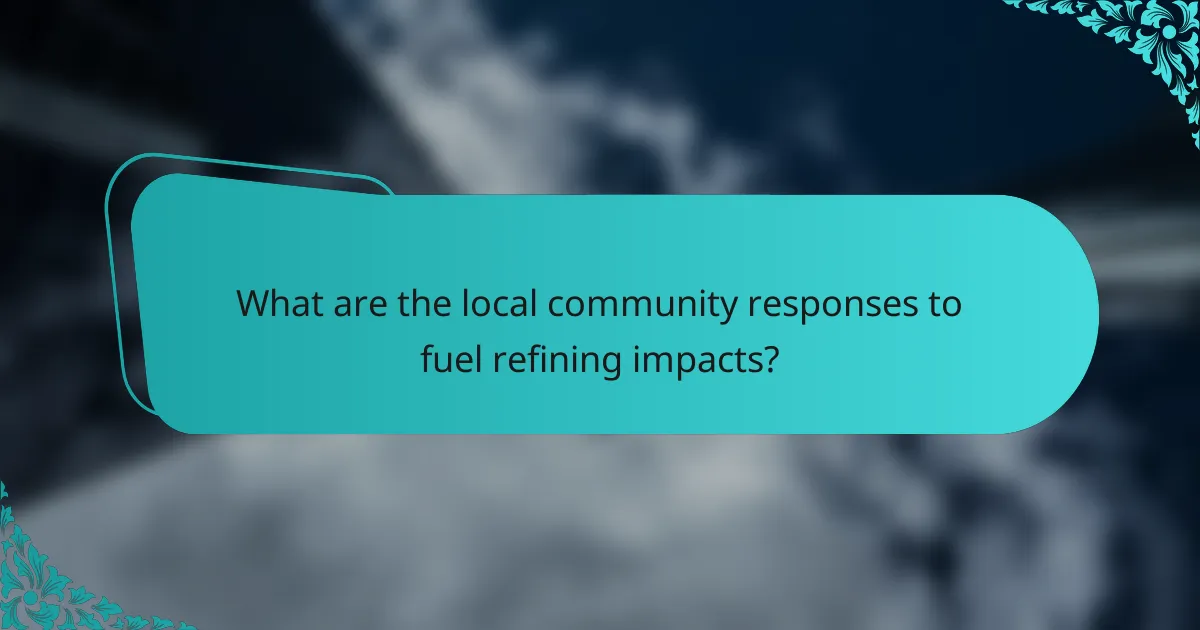
What are the local community responses to fuel refining impacts?
Local communities often respond to fuel refining impacts through protests and advocacy for stricter regulations. These actions aim to address environmental concerns such as air and water pollution. Community members frequently organize meetings to discuss health risks associated with emissions from refineries. They may also collaborate with environmental organizations to raise awareness. Legal actions can be taken against refineries for violations of environmental laws. Some communities push for the implementation of renewable energy sources as alternatives. Public health studies often support their claims, linking refinery emissions to respiratory issues. These responses reflect a collective effort to protect local ecosystems and public health.
How do local communities perceive the effects of fuel refining?
Local communities often perceive the effects of fuel refining as negative. They express concerns over environmental pollution, including air and water contamination. Health issues, such as respiratory problems, are frequently reported by residents living near refineries. Economic benefits, like job creation, are acknowledged but are often overshadowed by environmental worries. Community members may feel that the risks to health and the ecosystem outweigh the economic advantages. Studies have shown that communities near refineries report lower quality of life due to these impacts. Public forums often reveal a strong desire for stricter regulations on emissions and waste management. Overall, local perceptions are shaped by a combination of health concerns, environmental degradation, and economic factors.
What are common concerns raised by residents in refining areas?
Common concerns raised by residents in refining areas include air quality, noise pollution, and health risks. Residents often report increased respiratory issues due to emissions from refineries. Studies indicate that proximity to refining operations correlates with higher rates of asthma and other illnesses. Water contamination is another significant concern, as spills and leaks can affect local water supplies. Residents also worry about the impact of refining activities on local wildlife and ecosystems. Traffic congestion from refinery operations can lead to safety hazards and further pollution. Community members frequently express concerns over the lack of transparency from refinery operators regarding safety measures. These issues collectively contribute to a heightened sense of vulnerability among residents living near refineries.
How do these concerns influence community activism and policy changes?
Concerns about fuel refining’s environmental impact drive community activism and policy changes. Activists often mobilize to address issues like air and water pollution. They raise awareness about health risks associated with fuel refining. This heightened awareness leads to increased public pressure on policymakers. Communities advocate for stricter regulations on emissions and waste management. Local governments may respond by implementing policies that protect ecosystems. For example, cities may adopt zoning laws limiting refinery operations. Evidence shows that community-led initiatives often result in tangible policy reforms. Studies indicate that grassroots movements can significantly influence environmental legislation.
What best practices can be implemented to minimize the impact of fuel refining?
Implementing best practices to minimize the impact of fuel refining involves adopting cleaner technologies and stringent regulations. Utilizing advanced refining techniques can reduce emissions and waste. Regular maintenance of equipment ensures optimal performance and minimizes leaks. Implementing closed-loop systems recycles water and reduces consumption. Training staff on environmental protocols enhances compliance and awareness. Conducting environmental impact assessments helps identify potential risks. Collaborating with local communities fosters transparency and trust. These practices collectively contribute to a more sustainable refining process.
What strategies can refineries adopt to reduce environmental harm?
Refineries can adopt several strategies to reduce environmental harm. Implementing advanced emission control technologies can significantly lower pollutants released into the air. For example, scrubbers can remove sulfur dioxide from exhaust gases. Additionally, refineries can optimize energy efficiency to reduce greenhouse gas emissions. Switching to cleaner fuels can also minimize harmful byproducts.
Investing in waste management systems helps in recycling and reducing waste disposal impacts. Regular maintenance of equipment prevents leaks and spills, which can harm local ecosystems. Collaborating with environmental agencies ensures compliance with regulations and promotes sustainable practices. Lastly, engaging with local communities fosters transparency and supports ecosystem conservation initiatives.
How can communities engage in monitoring and advocacy for better practices?
Communities can engage in monitoring and advocacy for better practices by forming local environmental groups. These groups can conduct regular assessments of air and water quality near fuel refining sites. They can also gather data on health impacts related to emissions from these facilities. Engaging in citizen science projects allows community members to contribute to data collection. Additionally, communities can advocate for stricter regulations through public meetings and petitions. Collaboration with environmental organizations enhances their advocacy efforts. Research shows that community-led initiatives can lead to improved regulatory outcomes. For example, a study by the Environmental Protection Agency highlights successful community interventions in pollution reduction.
The main entity of this article is fuel refining and its effects on local ecosystems. The article outlines the negative impacts of fuel refining, including air and water pollution, soil contamination, and harm to biodiversity. It discusses the pollutants released during the refining process, their effects on human health and local flora and fauna, and the broader environmental implications, including contributions to climate change. Additionally, the article addresses community responses, regulatory measures, and best practices for minimizing environmental harm associated with fuel refining.
